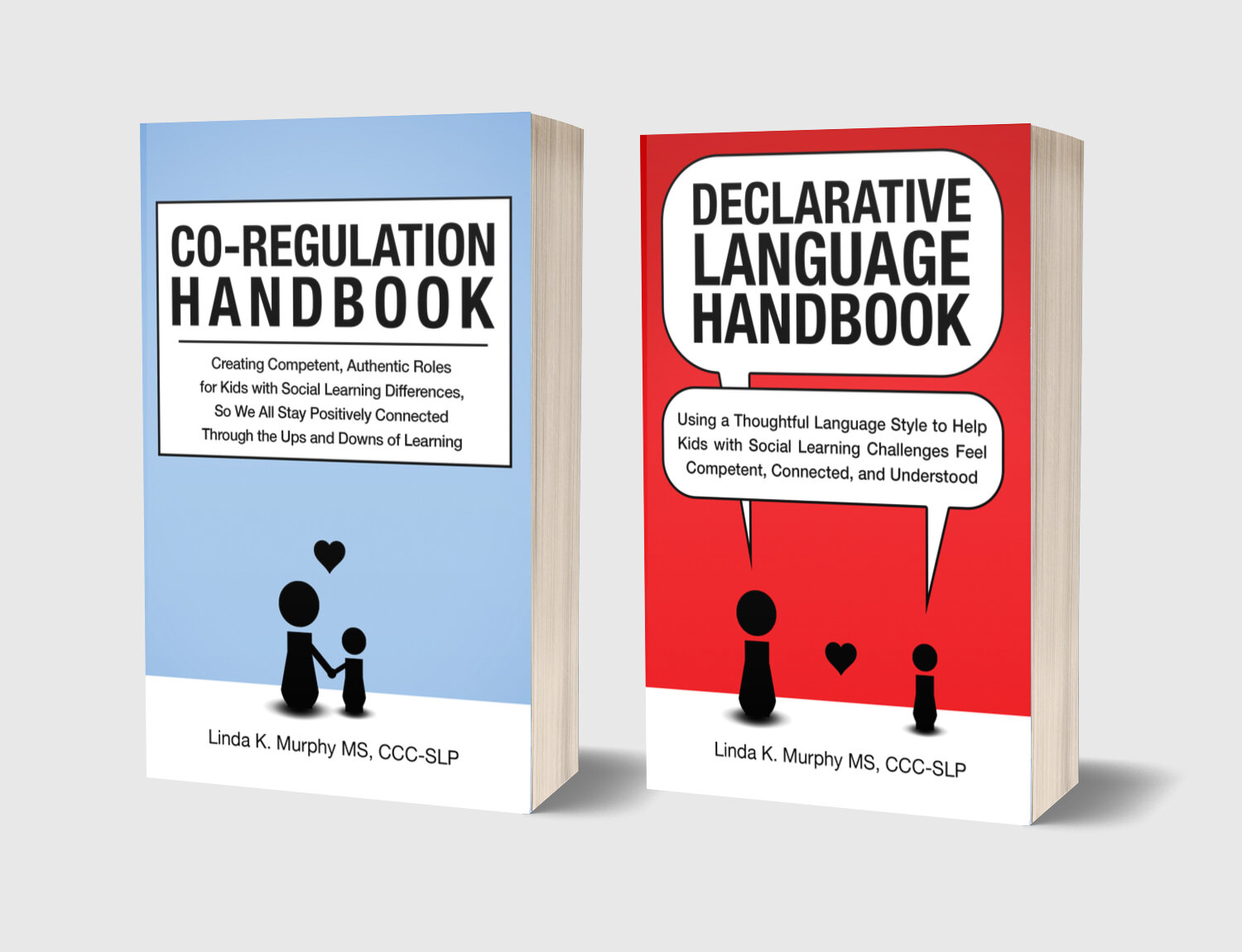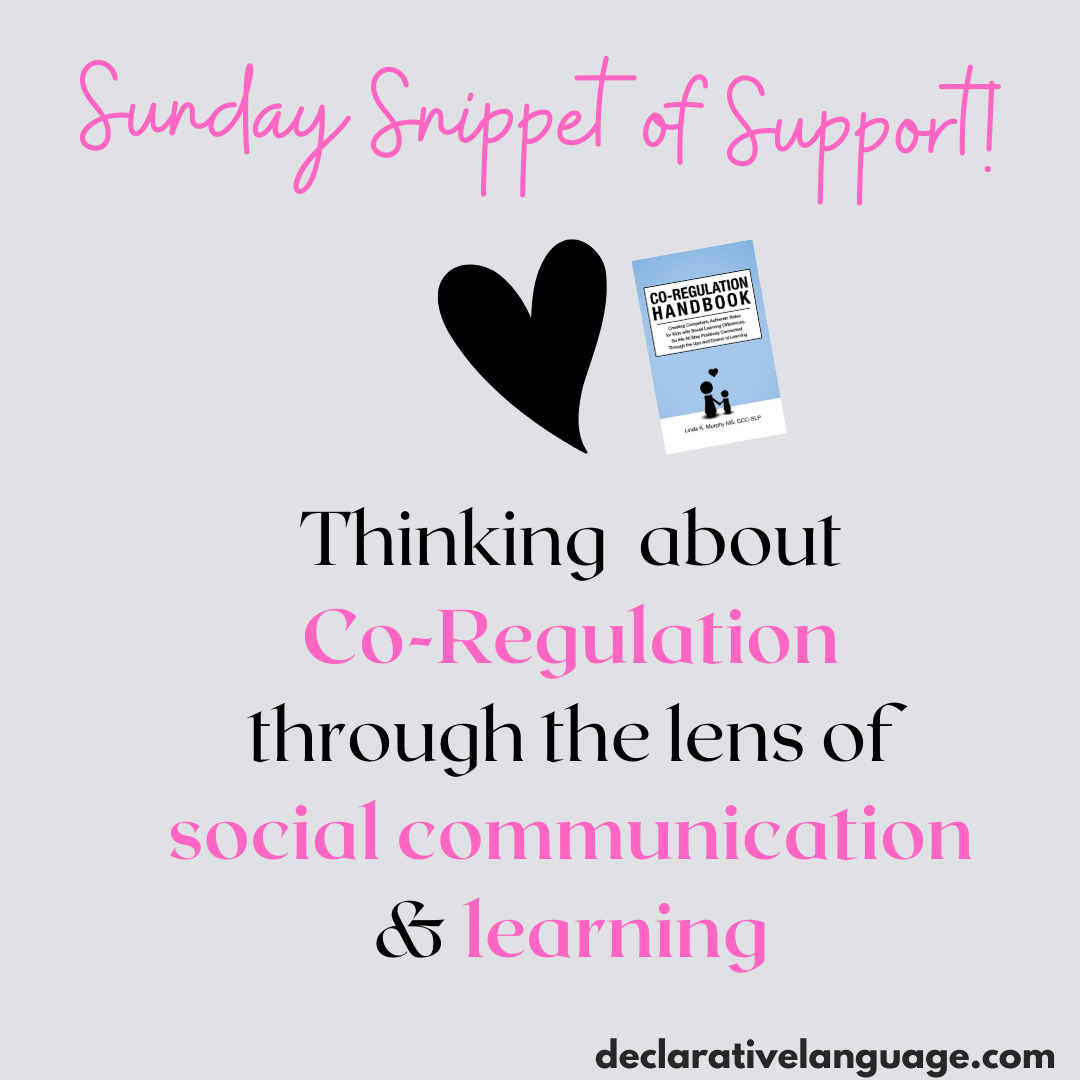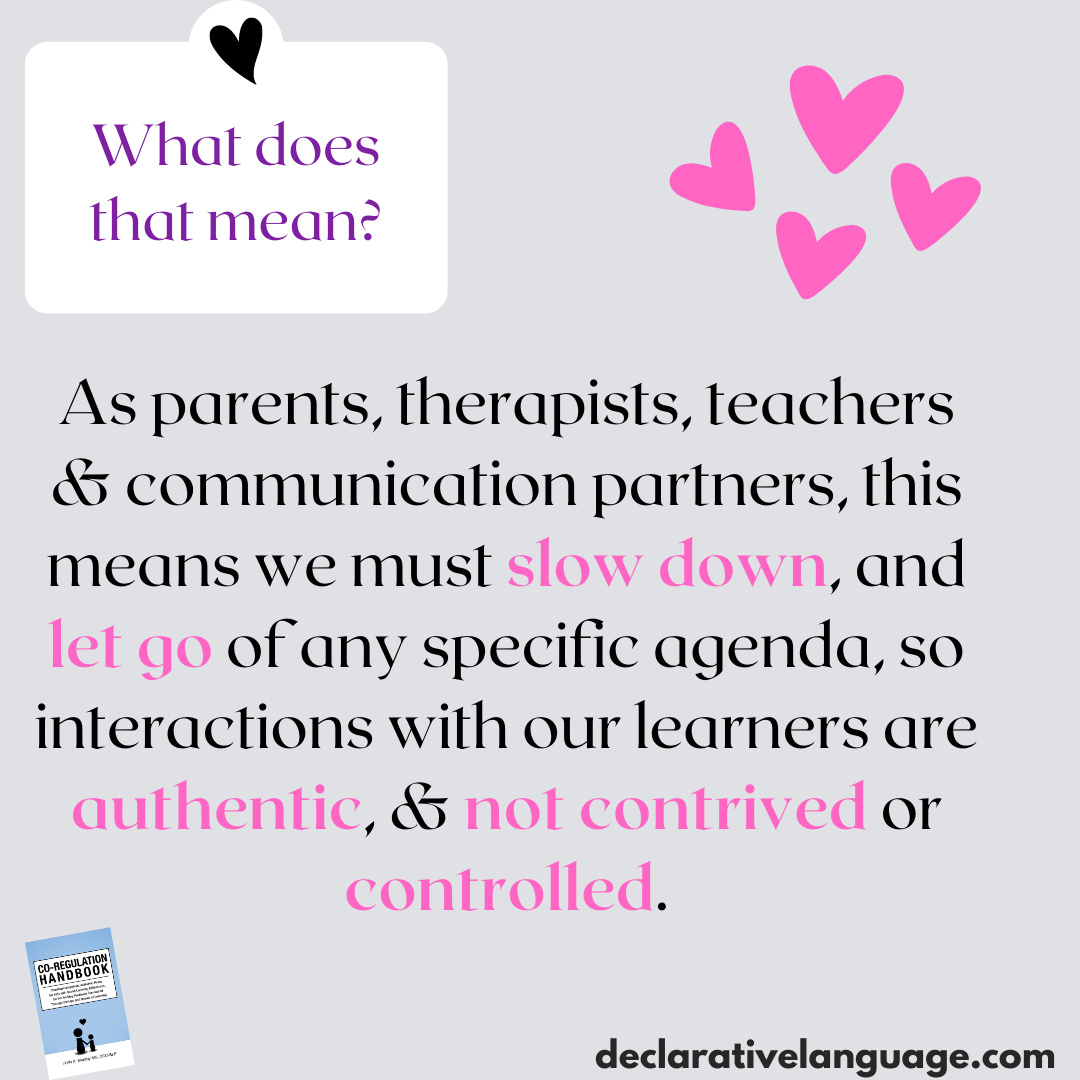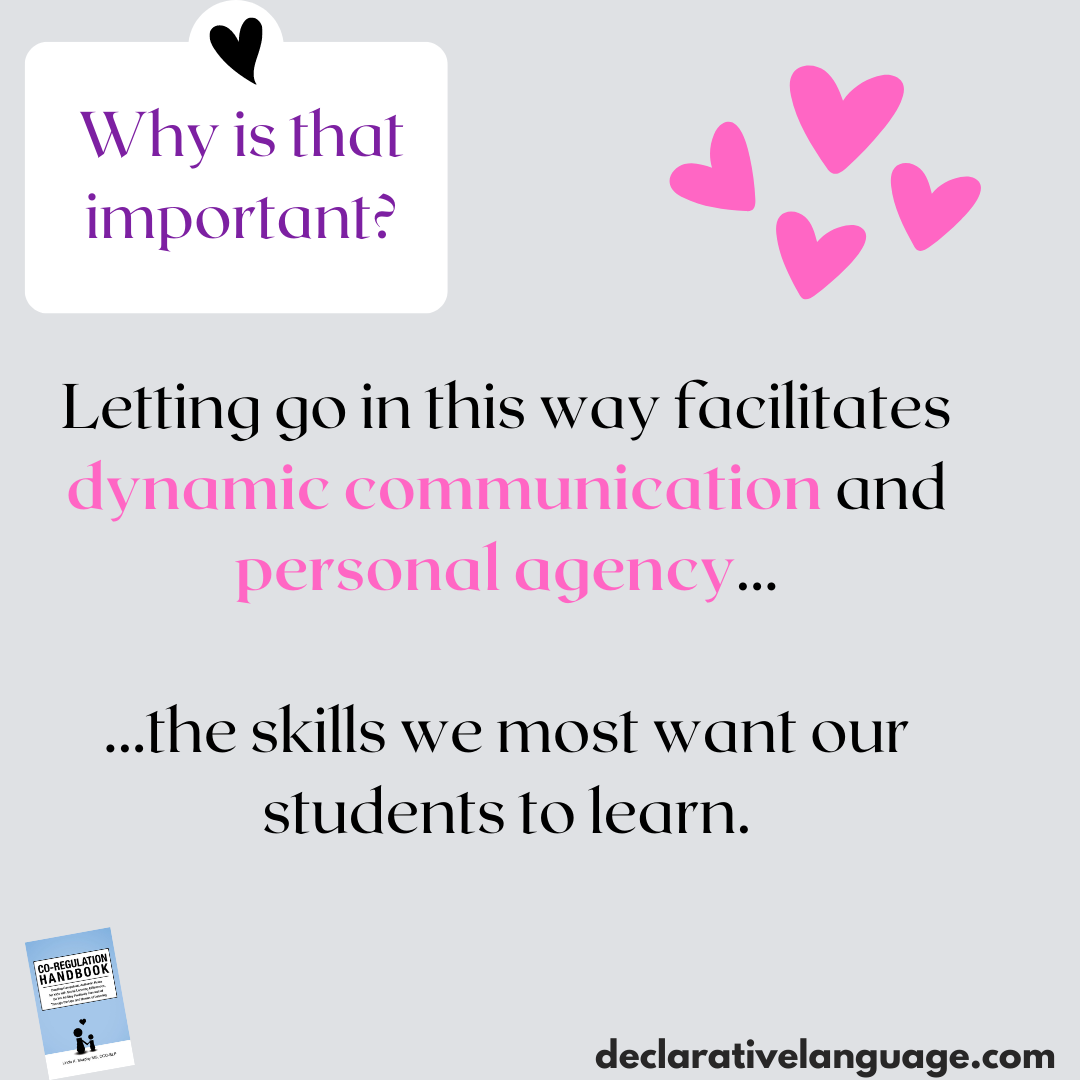Co-Regulation, Social Communication & Learning
I am looking forward to recording a podcast episode soon for This Speech Life with Caitlin Lopez, MS, CCC-SLP, on the topic of Co-Regulation. One of the questions Caitlin will ask me is, “What do school based SLP’s need to know about co-regulation?”
I am constantly thinking about co-regulation, and more specifically, how to best talk about it so people understand:
what I mean
how I am thinking about it
why it is important
and
how powerful it can be.
This is a work in progress for me!
Many first think about co-regulation in terms of the nervous system, and how a caregiver supports a child to regulate using co-regulation. This is really important, and part of what I discuss in Chapter 3 of Co-Regulation Handbook: Managing Ourselves: How are Self-Regulation and Co-Regulation Related?
But, when I think about and use the concept of co-regulation, I am taking it beyond this idea and applying it forward to dynamic communication and learning overall.
In RDI, we consider researcher Dr. Alan Fogel’s definition of co-regulation, found in his book Developing Through Relationships, which is to be in sync moment-to-moment with another person (or in other words, we are regulating to another person moment-to-moment, co-regulating!).
This means that, when we are truly engaged in co-regulation with another person:
we are present to each other
and
we let go of any agenda so that we may respond to each other uniquely within each moment in time.
Co-regulation, through this lens, is a vital partner to declarative language. With DL, we are also working to communicate in the present moment, and let go of any specific agenda, so that we may meet a learner where they are at right now, and create a dynamic communicative exchange.
When DL alone fails me, I immediately pull in co-regulation, and vice versa!
When co-regulation unfolds in the way I am talking about, we create something powerful: a rich feedback loop with our learner, where:
we become better able to interpret their communication in the moment
we better understand who they are as learners and communicators
and
we learn to respond within each moment in a way that supports their growth and learning.
Then what happens next, when we do this, is even more important.
Kids feel understood.
They feel competent.
They feel connected.
They feel safe!
They then become:
more open to learning and new experiences
braver when facing new challenges
and as a result…
They develop new skills.
They develop resilience.
They learn to self-advocate.
And they start to understand themselves better.
It’s pretty amazing!
Although co-regulation through this lens may not be as easy to learn as declarative language, it is so worth it to try. As with any new concept, it takes practice to understand and apply it in real time, and patience to observe how it leads to new skills and growth over time.
But, I hope you all take the time to learn more about co-regulation through this lens because this learning (along with DL), has truly changed everything for me. It has changed how I connect with kids, how I teach, and how I guide students to move outside their comfort zone toward great things!
Have a great week!
p.s. The podcast episode will be available on July 12th. I’ll link it in here then!
If you like my Sunday Snippets of Support, you can receive them directly to your inbox here.









